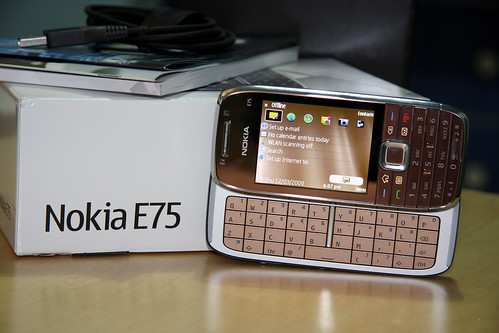Nokia And Microsoft... But How About Android?
 Putting together the Microsoft-Nokia alliance announced last week with Gartner's new figures on the smartphone market, and you would think the entire device world revolves around Nokia's focus on keeping runner-up Research in Motion at bay.
Putting together the Microsoft-Nokia alliance announced last week with Gartner's new figures on the smartphone market, and you would think the entire device world revolves around Nokia's focus on keeping runner-up Research in Motion at bay.
And at first glance, you'd be right. The alliance does a number of things for both Nokia and Microsoft.
- For Nokia, it makes Symbian-based smartphones a less-expensive alternative to RIM's Blackberry Enterprise Server, because it won't cost enterprises extra to manage Nokia devices using Exchange, and the alliance makes Microsoft Office into a native Nokia application;
- The alliance could also help Nokia promote Web-based mobile applications through Microsoft's on-demand SharePoint Server collaboration portal;
- Microsoft can appeal to Nokia's huge worldwide user and developer base without waiting for its new app store to gain traction, and may have found a way to rescue its presence in the mobile market when it inevitably sunsets the flagging Windows Mobile franchise.
Microsoft's share continued to drop year-on-year to account for 9 per cent of the market in the second quarter of 2009. [emphasis mine]
 Symbian continues to hold the lion's share with 51 percent, RIM is at 19 percent, and Apple at 9 percent. As Fortune's Philip Elmer-DeWitt summarized the report,
Symbian continues to hold the lion's share with 51 percent, RIM is at 19 percent, and Apple at 9 percent. As Fortune's Philip Elmer-DeWitt summarized the report,Sales of Nokia's Symbian smartphones are drifting. Apple's iPhone is gaining on RIM's BlackBerry. Microsoft's Windows Mobile is still sinking. And the launch of the Palm Pre barely made a ripple in the gobal smartphone market.So why am I talking about Android, which barely tips the scale at 2 percent of the smartphone OS market? Because while everyone else is foundering, Android is taking off. One of the big outliers in the Gartner report is HTC, which boosted handset sales by 46 percent. Only Apple did better. In case you hadn't guessed, HTC's big release this year was the G1, the first Android-powered handset to hit the market.
More, much more is on the way. According to Phil Goldstein, HTC is in the process of launching two new Android-based handsets, the Hero and Magic.
HTC has shipped more than 1 million units of the Magic, its second phone powered by Google's Android platform, according to a DigiTimes report citing HTC CEO Peter Chou. The phone launched in Europe this spring and made its debut Aug. 5 in the U.S. as T-Mobile USA's myTouch 3G.
Meanwhile, Chinese handset maker ZTE, which recently signed deals with MetroPCS, Verizon Wireless and Sprint Nextel, said it's building a handset using Android, which it plans to first market in Asia. Samsung and Motorola are also rolling out Android-powered devices later this year. The opportunity to make a successful push in enterprise markets isn't lost on Google, which isn't waiting around for third-party developers to get with the program, according to BusinessWeek.